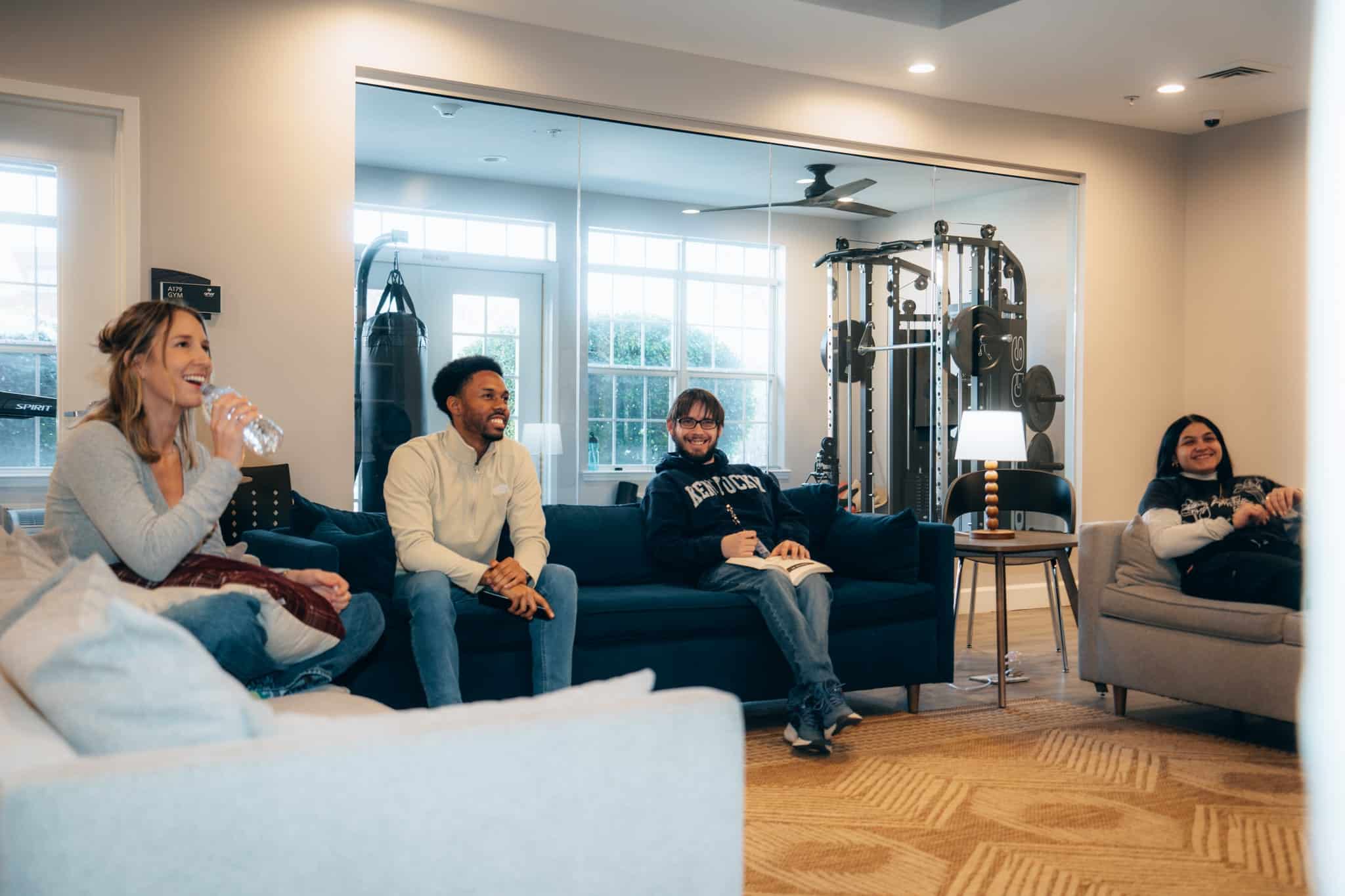In clinical terms, anxiety can refer to several distinct conditions. In today’s post, we review the similarities and differences between two common forms of anxiety: social anxiety disorder vs. generalized anxiety disorder.
Arbor Wellness offers anxiety treatment in Nashville to help overcome anxiety.
What Are Anxiety Disorders?
Before we delve into the similarities and differences between social anxiety disorder vs. generalized anxiety disorder, let’s take a step back and briefly discuss the general category that these conditions belong to.
Anxiety disorders are a collection of conditions with symptoms that include overwhelming worry, disproportionate fear, and resultant behavioral changes. Some anxiety disorders also include upsetting physical symptoms.
The anxiety disorders section of the fifth edition of the Diagnostic and Statistical Manual of Mental Disorders (DSM-5) contains entries for the following:
- Generalized anxiety disorder (GAD)
- Social anxiety disorder (social phobia)
- Panic disorder
- Agoraphobia
- Specific phobia
- Separation anxiety disorder
- Selective mutism
Symptoms can vary somewhat from one anxiety disorder to the next, but all of them involve extreme fear and worry. The main differentiators among these conditions are the circumstances that typically trigger the onset of symptoms.
Signs and Symptoms of Social Anxiety Disorder
Now, we’re ready to begin our comparison between social anxiety disorder vs. generalized anxiety disorder. We’ll start by focusing on what it can look and feel like to have social anxiety disorder.
Also commonly referred to as social phobia, social anxiety disorder is characterized by:
- Intense fear of being in situations where you may be scrutinized, evaluated, and/or judged by other people
- Worry that if you are in these types of situations, you will act in a manner that will cause you to embarrass or humiliate yourself, or be rejected by other people
The symptoms of social anxiety disorder may manifest in decisions and behaviors such as:
- Refusing to meet new people or interact with people you don’t know
- Being unwilling to eat meals in restaurants or other public spaces
- Turning down job opportunities or promotions because you would be required to give presentations or speak to large groups
- Having difficulty forming new friendships or romantic partnerships
Signs and Symptoms of Generalized Anxiety Disorder
Generalized anxiety disorder can cause symptoms such as:
- Excessive, uncontrollable fear or worry about several events or activities
- Pervasive sense of restlessness
- Disrupted sleep patterns and persistent exhaustion
- Problems concentrating or focusing
- Muscle tension
If you have GAD, your life might be impacted in the following ways:
- Living with a persistent sense of dread, as though you or someone you care about are in imminent danger
- Experiencing dramatic mood swings
- Turning to alcohol or other drugs as a means of self-medication, or to temporarily numb yourself to your fears
- Conflicts with family members, friends, and colleagues
- Subpar performance in school or at work
- Overall poor quality of life
Comparing Social Anxiety Disorder vs. Generalized Anxiety Disorder
Now that we’ve reviewed these two disorders separately, we’re ready to discuss key similarities and differences between social anxiety disorder vs. generalized anxiety disorder.
Similarities
Since these conditions share a category, it’s not surprising that they also have a number of common features, such as:
- Both of these disorders affect millions of people.
- A person’s risk of developing either disorder can be influenced by both internal (genetic) and external (environmental) factors.
- Social anxiety disorder and generalized anxiety disorder are both associated with elevated risk of substance use disorders (addictions).
- Both disorders can have a disruptive influence on a person’s academic progress, career growth, and personal relationships.
- Both social anxiety disorder and GAD are treatable conditions.
Differences
Among the more significant differences between social anxiety disorder vs. generalized anxiety disorder are how many people they affect, what causes symptoms to begin, and how long symptoms usually last:
- Social anxiety disorder is more common than generalized anxiety disorder. Among adults in the U.S., the National Institute on Mental Health (NIMH) reported that the lifetime prevalence of these conditions is 12.1% for social anxiety disorder and 5.7% for GAD.
- When broken down by age groups, social anxiety disorder is most common among those ages 18-29, with a past year prevalence of 9.1%. GAD is most common among the 30-44 age range, affecting about 3.5% of people in a typical year.
- The symptoms of social anxiety disorder are usually caused by certain situations or experiences. The symptoms of GAD can occur at any time, with no obvious trigger.
- The symptoms of social anxiety disorder will usually dissipate when a person is not in (or thinking about) specific circumstances, while GAD symptoms can endure for extended periods. As established in the DSM-5, the criteria for a GAD diagnosis include having symptoms “more days than not” for a period of at least six months.
Learn More About Anxiety Disorder Treatment in Nashville
Untreated anxiety disorders can prevent you from living the life you deserve. But when you get the right type of treatment from a reputable provider, you can make sustained progress toward a much healthier and more hopeful future.
Arbor Wellness offers a full continuum of customized care for adults who have social anxiety disorder, generalized anxiety disorder, and many other mental health concerns. Our center also serves patients whose mental health struggles are accompanied by co-occurring addictions.
Programming options at our anxiety treatment center in Nashville, Tennessee, include residential care, a partial hospitalization program (PHP), and an intensive outpatient program (IOP). We also offer specialized services for young adults and military veterans.
Our team of compassionate experts will work closely with you to identify the full scope of your needs, set appropriate short- and long-term goals, and develop a personalized treatment plan just for you. Throughout your time in our care, we will encourage you to play an active role in all aspects of your treatment, with the goal of empowering you to become an informed self-advocate.
To learn more about how we can help you or a loved one – or to schedule a free assessment – please visit our Admissions page or call us today.

























